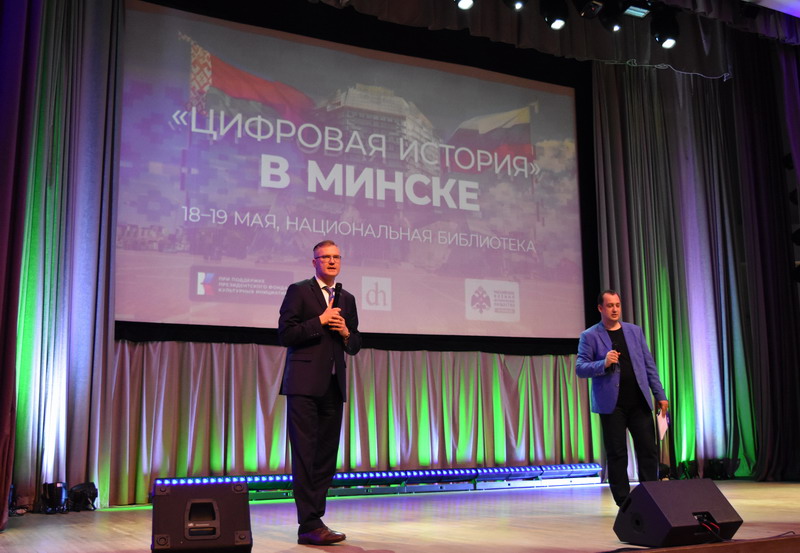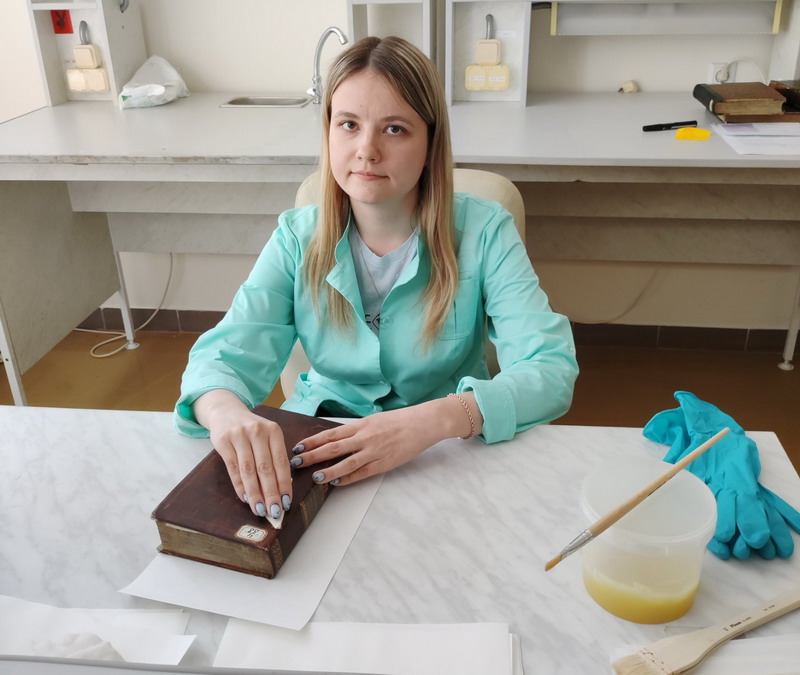A new project of the National Library of Belarus is dedicated to the Great Patriotic War – "Reading newspaper lines with your heart. On the 80th anniversary of the liberation of Belarus from the Nazi invaders."This week, the Korsun-Shevchenko offensive operation began, which modern military science considers one of the outstanding operations to encircle and eliminate large formations of German troops. On January 23, the district center of Lelchitsa in the Gomel region was liberated. And on January 27, Leningrad was finally liberated from the blockade ("1418 days of the Great Patriotic War", Minsk, 2005, pp. 288-291).
Every week from January to August 2024, the portal of the National Library publishes materials from newspapers of Soviet Belarus in 1944, reflecting the chronicle of news and events of that time.

Kudoyarov, B.P. Leningrad under siege. ROSPHOTO. Photos from the "Images of War" resource.
The military blockade of the city of Leningrad (now Saint Petersburg) by German and Finnish troops and their allies during the Great Patriotic War lasted from September 8, 1941 to January 27, 1944 – 872 days.

125 grams of bread on the scales, which were the established norm for employees, dependents and children during the siege of the city of Leningrad. Photos from the "Images of War" resource.
Newspapers continued to publish materials dedicated to V.I. Lenin: articles, reports on reports, meetings.
The attention to the personality of Vladimir Ilyich Lenin and his activities in the USSR was enormous. His birthday was solemnly celebrated on April 22, and the date of his death on January 21 was not ignored. V.I. Lenin's role in the victory of the Socialist Revolution on November 7, 1917 was decisive. He also stood at the foundations of the new Soviet state – with a fairer attitude towards the man of work and the distribution of common wealth in the country.
Some of Vladimir Lenin's statements have become catch phrases, sometimes, in a truncated form, they are obviously interpreted incorrectly. For example, he is mistakenly credited with saying that the cook can run the state. In fact, the phrase about the cook sounded like this:
"We are not utopians. We know that any labourer and any cook is not capable of entering into government right now. <...> But we <...> demand an immediate break with the prejudice that only the rich or from rich families, taken officials, are able to run the state, carry out the everyday, daily work of management. We demand that training in the business of public administration be conducted by conscious workers and soldiers, and that it be started immediately; that is, all working people, all the poor, should immediately begin to be involved in this training" (Lenin, V.I. Will the Bolsheviks retain state power? 1917, pp. 21-22).
An interesting photo was found in the newspaper “Za Radzimy” (No. 22).

The son of the Hero of the Soviet Union Nikolai Gastello. "Za Radzimy" (No. 22). The NLB Foundation.
Nikolai Frantsevich Gastello (1907 – 1941) was a Soviet military pilot, participant in three wars, captain, squadron commander. He died in the first days of the war during a combat mission in the Molodechno area; Hero of the Soviet Union. During the attack on the clusters of German equipment, Gastello's plane was shot down and caught fire, Gastello sent a burning plane to a mechanized column of enemy equipment and rammed it. The feat of Gastello and his crew was widely covered in the media. Similar rams were carried out by other pilots during the Great Patriotic War.

N.F. Gastello. The Great Patriotic War, 1941-1945. Isomaterial from the NLB foundation.
In agriculture, especially in the recently liberated territories, the issue of leadership personnel was acute. To solve it, courses for collective farm chairmen were opened in the Mogilev region. During the month, 60 people studied agricultural technology, mechanization, and work organization ("Za Radzimy", No. 22).
New metro stations have opened in Moscow – "Baumanskaya", "Stalinskaya", "Izmailovsky Park of Culture and Recreation named after Stalin".
The Moscow Metro is one of the most beautiful and complex architectural objects of the USSR and today's Russia. Its first line was opened on May 15, 1935. By the beginning of the war, 21 stations on three branches had been opened. The metro continued to operate, but construction was suspended until the withdrawal of German troops from Moscow in December 1941. Some of the unfinished stations, including "Stalinskaya" (since 1961 "Semenovskaya"), were used as a bomb shelter.
Today, many stations, built among the first, often decorated with reliefs, sculptures, mosaics, are vivid examples of Soviet art and are included in the register of architectural monuments. These include the "Baumanskaya" named in the article.

Sculpture "Partizanka" at the "Baumanskaya" metro station of the Moscow Metro. Photos are taken from open sources.

Sculpture "Scout" at the "Baumanskaya" metro station of the Moscow Metro. Photos are taken from open sources.
There were 31 weeks left before the liberation…
The material was prepared by L.G. Tupchienko-Kadyrova,
Candidate of Historical Sciences, chief bibliographer
of the Information and Analytical Department.
Источники/Sources:
Газеты/Newspapers:
- Віцебскі рабочы : орган Віцебскага Абласнога і Гарадскога Камітэтаў КП(б)Б, Абласнога і Гарадскога Саветаў Дэпутатаў Працоўных, 1944, № 5.
- За радзіму : орган Магілёўскага абласнога і гарадскога КП Беларусі і абласнога і гарадскога Савета дэпутатаў працоўных, 1944, № 20.
- За радзіму, 1944, № 21.
- Калгаснік Капыльшчыны : орган Капыльскага райкома КП Беларусі і раённага Савета дэпутатаў працоўных, 1944, № 4.
- Савецкая Беларусь : орган ЦК КП(б) Беларусі, Саўнаркома і Прэзідыума Вярхоўнага Савета БССР, 1944, № 7.
- Савецкая Беларусь, 1944, № 8.
- Сталінец: орган Грэскага райкома КП Беларусі і раённага Савета дэпутатаў працоўных, 1944, № 4.
- Сталінец: 1944, № 5.
- Капитан Гастелло // [Борьба белорусского народа против немецко-фашистских захватчиков] [Изоматериал] : [Комплект фот.]. – Б.м. : Б.и., Б.г. – 17 отд.л. : фот.ч.-б. ; 18х24 см.
- Ленин, В. И. Удержат ли большевики государственную власть? / Н. Ленин ; Рос. социал-демократ. рабочая партия. – Петербург : Прибой, 1917 (типография «Труд», т-во «Рабочая печать»). – 40 с.
- 1418 дней Великой Отечественной войны : хронология событий : [солдату Великой Отечественной посвящается / сост. Е. В. Малашевич ; науч. ред.: Е. И. Барановский, Г. И. Баркун ; фото: В. В. Харченко]. – Минск : Мастац. літ., 2014. – 421, [1] с.










